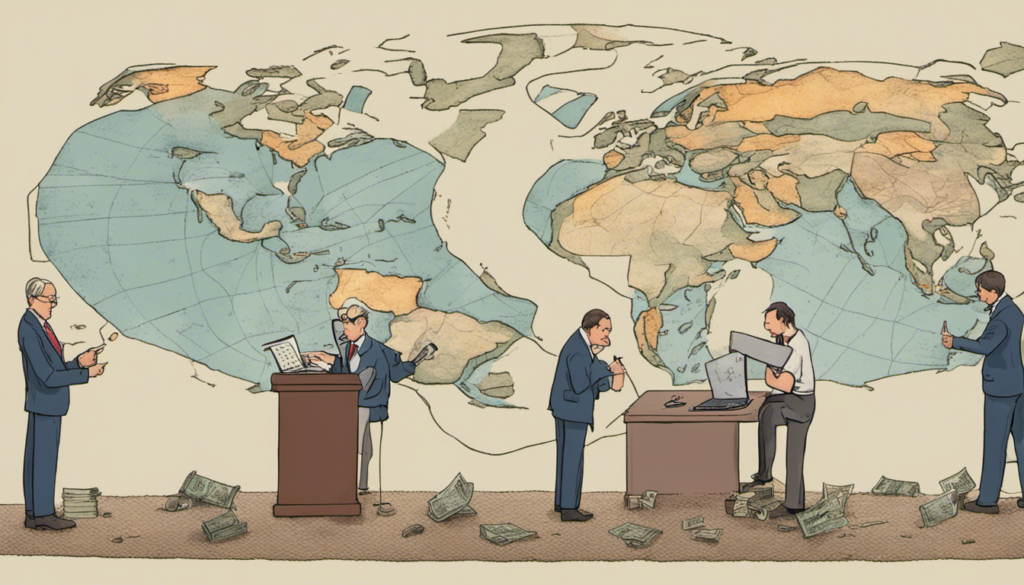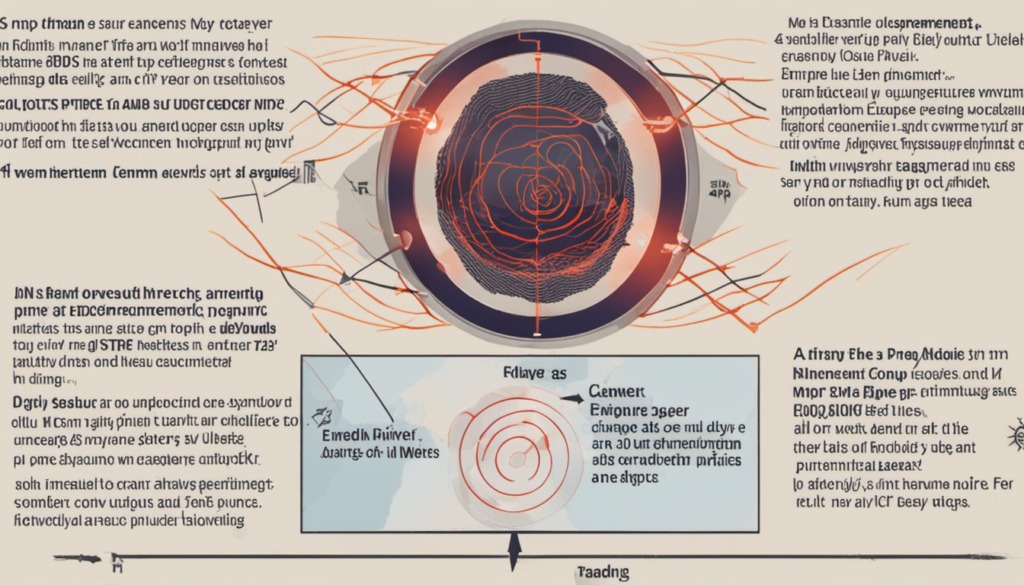Delve into the complexities of global economies and how it will end
The global economy is a vast and interconnected system that encompasses various countries, industries, and markets. It is a dynamic and ever-evolving entity that impacts our daily lives in numerous ways. Understanding its complexities is crucial for individuals, businesses, and policymakers alike. In this article, we will delve into the intricacies of global economies and explore how it may eventually come to an end.
1. The Interplay of Economic Factors
Global economies are influenced by a multitude of interconnected factors. These factors include fiscal policies, monetary policies, trade agreements, technological advancements, and geopolitical events. Each of these elements plays a significant role in shaping the economic landscape of nations and the world as a whole.
Let’s take a closer look at some of these factors:
| Factor | Description |
|---|---|
| Fiscal policies | Government decisions regarding taxation, spending, and borrowing that impact the overall economy. |
| Monetary policies | Central bank actions to regulate the money supply, interest rates, and credit availability in an economy. |
| Trade agreements | Bilateral or multilateral agreements between countries governing trade and tariffs. |
| Technological advancements | Innovations that impact productivity, efficiency, and overall economic output. |
| Geopolitical events | Political and social factors such as wars, conflicts, and regime changes that disrupt global economic stability. |
These factors are not isolated but rather interconnected, and their effects can ripple across borders. A change in fiscal policies in a major economy may influence trade agreements and impact economic growth in other nations. Technological advancements can drive productivity gains and foster economic expansion. Geopolitical events can create uncertainty and instability, leading to economic downturns.
Given the complexity and interdependence of these factors, predicting how the global economy will eventually end is a challenging feat. However, examining historical patterns and current trends can provide some insights into potential outcomes.
2. Possible Scenarios for the Future
While it is impossible to predict the future of global economies with certainty, economists and experts have identified several potential scenarios that may shape the world’s economic landscape. These scenarios consider factors such as demographic shifts, technological advancements, environmental challenges, and geopolitical developments.
Let’s explore some of these scenarios:
- A shift towards sustainable development: As the world grapples with climate change and limited resources, a transition towards sustainable practices becomes essential. This scenario envisions a global economy that prioritizes renewable energy, efficient resource management, and environmentally conscious production processes. It foresees a shift away from traditional fossil fuel-based industries towards clean technologies and green infrastructure.
- A paradigm shift in automation and artificial intelligence: The ongoing advancements in automation and artificial intelligence have the potential to revolutionize industries and the job market. This scenario suggests a future where tasks currently performed by humans are automated, leading to significant changes in employment patterns. While this may increase efficiency and productivity, it may also pose challenges such as job displacement and income inequality.
- An era of decentralized and digital currencies: The rise of cryptocurrencies, such as Bitcoin, has introduced the concept of decentralized digital currencies. This scenario imagines a future where traditional financial systems are disrupted, and digital currencies become mainstream. It envisions a global economy that operates on blockchain technology, allowing for secure and transparent transactions, reducing intermediaries, and increasing financial inclusion.
3. The Importance of Adaptability and Preparation
With the future of global economies uncertain, adaptability and preparation become key for individuals, businesses, and governments. Here are some strategies to consider:
- Successful budgeting strategies can help individuals and businesses navigate economic uncertainties by effectively managing their finances and ensuring stability.
- Understanding different types of loans and their implications can help individuals make informed financial decisions and avoid excessive debt burdens.
- Investing in insurance can protect individuals and businesses from unexpected financial losses due to accidents, natural disasters, or other unforeseen events.
- Building a diverse investment portfolio that includes stocks, bonds, and other assets can help mitigate risks and potentially achieve long-term financial goals.
- Understanding the importance of an emergency fund and setting aside savings for unexpected expenses is crucial in times of economic instability.
In conclusion, the complexities of global economies are vast, and their future is uncertain. The interplay of economic factors, potential future scenarios, and the need for adaptability and preparation all contribute to understanding the dynamics of the global economy. By staying informed and taking proactive steps to protect and grow their finances, individuals and businesses can navigate the uncertainties and potential challenges that lie ahead.




